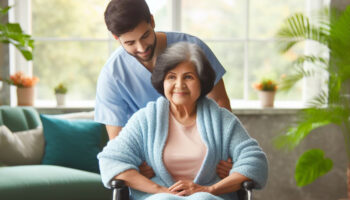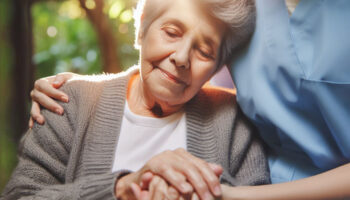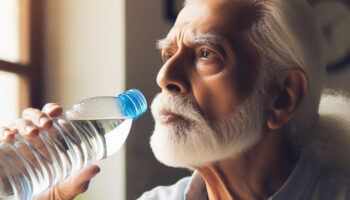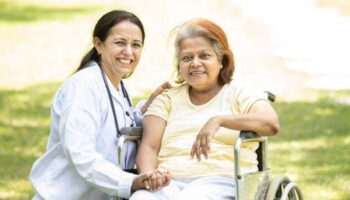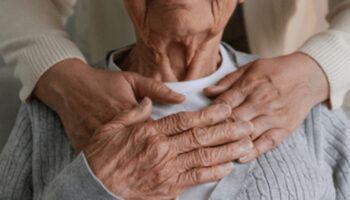Anxiety is a frequent emotion experienced by people of all ages, and it is a natural stress response. Anxiety can assist us in coping with issues and unusual situations, as well as avoiding danger. It’s natural to be concerned about illnesses, new social contacts, and scary situations. However, if one is anxious frequently and the worry is severe, it may be an illness that interferes with everyday tasks, social life, and relationships. Anxiety is a prevalent condition among the elderly, affecting 10-20% of the population, it is frequently misdiagnosed. Anxiety and Phobia have a lot in common. It’s the most common form of anxiousness. Anxiety is the most frequent mental health concern among older persons, and it affects both men and women equally.
Anxiety in seniors may go untreated for a variety of reasons. They frequently fail to notice or acknowledge their symptoms. When they do, they may be hesitant to share their emotions with their doctors. Some seniors may not seek treatment because they have experienced anxiety symptoms for most of their lives and believe the symptoms are typical. Because of additional physical concerns that the senior is dealing with, both patients and doctors may overlook a diagnosis of anxiety. Anxiety in older persons is greater than usual grief. Anxiety left untreated can result in cognitive impairment, disability, poor physical health, and a poor quality of life. Anxiety is fortunately treatable with prescription medicines and treatment. Thus, older adults are needed individualized care and assistance to overcome anxiety.
Depression vs. Anxiety in seniors
Depression is a treatable medical disorder, similar to diabetes or hypertension, and is not a natural component of ageing, though older persons are more likely to suffer from it. Health issues, bereavement, and loss of social interaction are all common causes of depressive symptoms in older persons. Experts, on the other hand, feel that anxiety disorders become better with age. However, specialists increasingly acknowledge that ageing and anxiety are not mutually exclusive: anxiety affects both young and old people. Anxiety disorders are the most common among older persons, yet they are typically linked to traumatic occurrences in the elderly population, such as a fall or an acute sickness.
Ways for active mind for seniors:
The ability to think, learn, and recall is referred to as mental and brain health. It’s critical to keep the mind of an ageing person active to avoid problems like cognitive decline. Furthermore, a sound mind is required for daily and autonomous functioning. Mental stimulation promotes both health and enjoyment. Seniors’ mental health and ability to learn new skills are improved by their cognitive capacities and memory. Here are some ideas for keeping seniors’ minds active.
Exercises for seniors:
Regular physical activity has been found to help older persons’ cognitive and mental health. The network connections in a senior’s brain are preserved and new connections are established by exercise. Physical activity also increases the size of memory and learning-related brain regions. Studies show that brisk walking and other aerobic activities are beneficial to one’s health. Seniors should attempt to exercise for 150 minutes each week, or 30 minutes many times per week. Certain aerobic exercises for seniors might assist them in overcoming anxiety and relaxing from tension and depression.
Music therapy for seniors:
Music therapy for elders is the clinical application of music to achieve aims such as stress reduction, mood improvement, and self-expression. It is a well-known evidence-based therapy in the medical world. Music therapy for elders can aid with blood pressure, memory, enhanced communication and social skills, and self-reflection by allowing them to experience music with others. Developing healthy coping abilities to regulate thoughts and emotions by observation, reducing muscle tension, and self-regulation.
Yoga for elders has quietly grown in popularity as a result of the numerous health benefits it offers.
- Improved Chronic Pain Management: Yoga assists older persons to manage the pain and symptoms of chronic conditions such as arthritis.
- Stress Reduction: It’s possible that older folks are unaware of how much stress they have in their neck, shoulders, and upper back until it’s gone. Yoga can help minimize the effects of stress on the body since it has a relaxing effect on the entire body.
Healthy diet for seniors:
Stress is a very common occurrence these days. Stress management for older folks, on the other hand, is more difficult since their physical response to stress and anxiety, or coping mechanism, isn’t as straightforward and uncomplicated as it is in younger people. As people age, their musculoskeletal and neurological systems deteriorate, and it becomes more difficult to manage stress and anxiety. Stress and anxiety in the elderly can be treated at home with correct medical care. Aside from their physical health benefits, many meals can help with stress, anxiety, sadness, and a variety of other ailments. If you’re worried about your elderly parents’ stress, here are a few stress-relieving foods and creative ways to incorporate them into their daily diet:
- Avocado
- Dark chocolate
- Milk
- Nuts and seeds
- Green vegetables
- Fruits
Rehab care for seniors:
As previously stated, loneliness can cause anxiety in seniors. This can be avoided by using assisted living facilities, where lonely seniors can find a place to call home. One of the best assisted living facilities for seniors in Chennai is Athulya Living. They provide the best care and medical assistance to seniors. Skilled nursing services are also available based on the needs of the elderly. One of the best senior living in Chennai is Athulya assisted Living. Let us give our elderly the opportunity to experience the stages of ageing.

